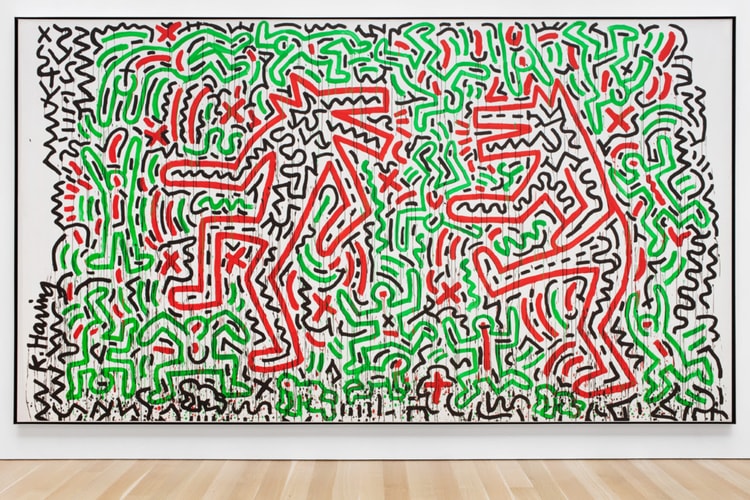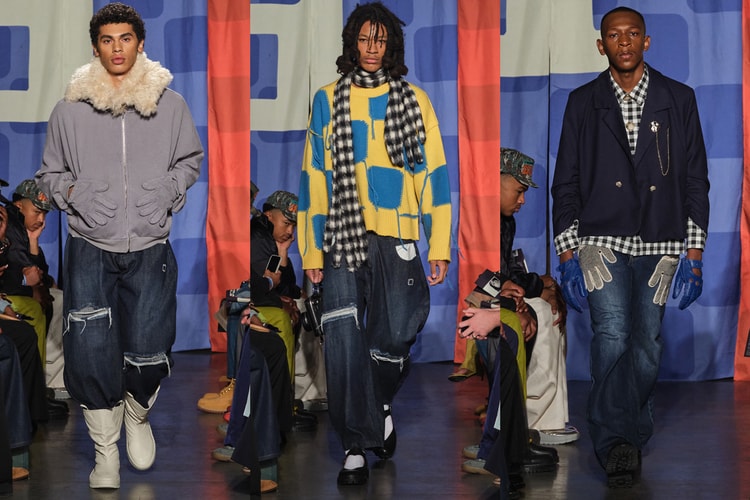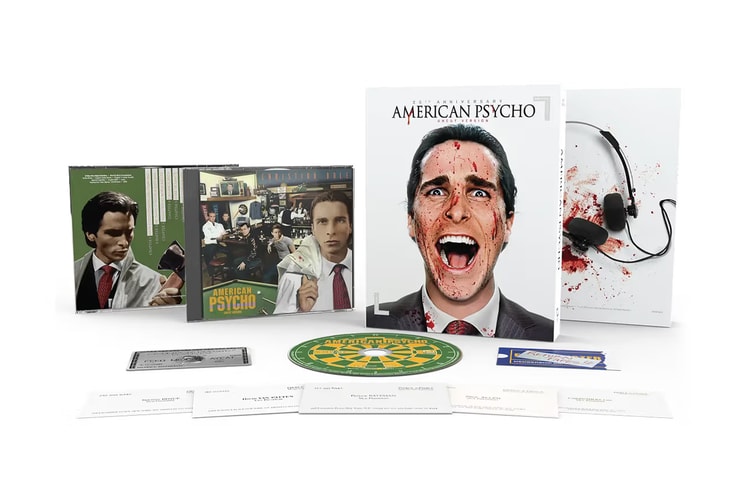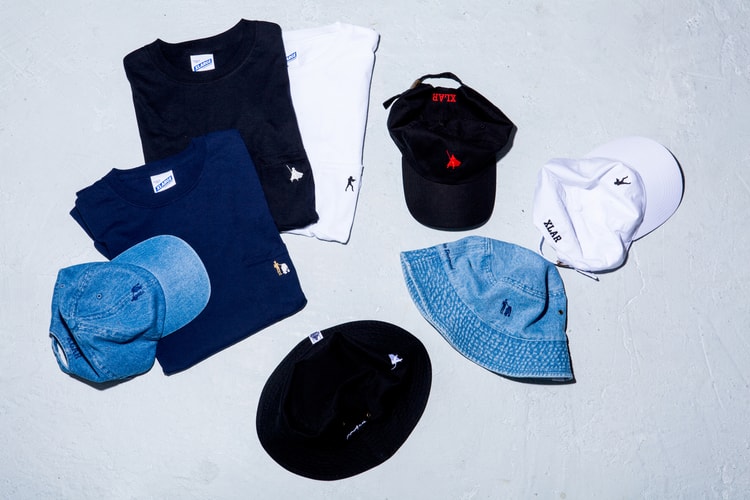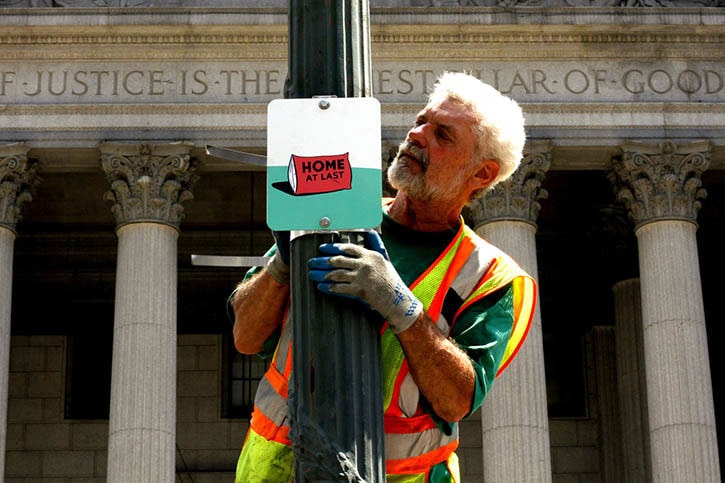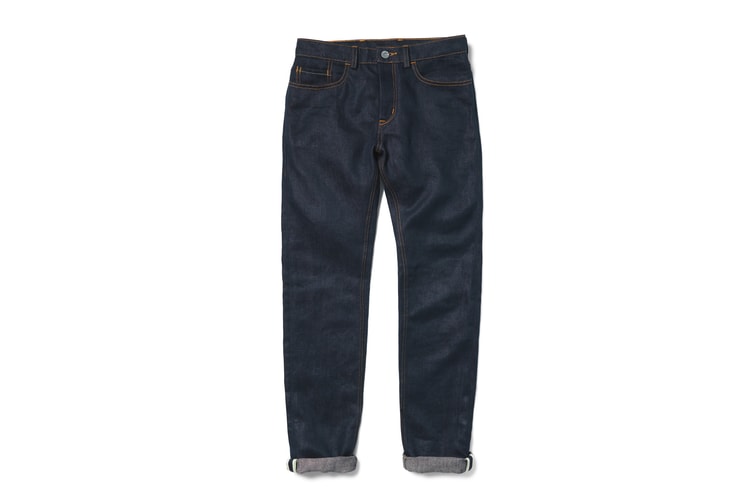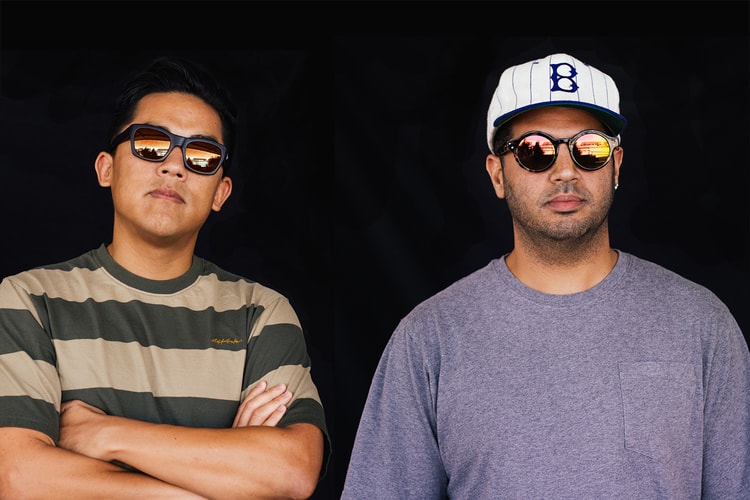American Hustle: A Conversation with Keith Ape
I heard about Keith Ape for the first time early this year when a friend enthusiastically showed me
I heard about Keith Ape for the first time early this year when a friend enthusiastically showed me the “It G Ma” music video. I was hesitant to listen to a rap song with mostly Korean and Japanese lyrics, but I soon found out why my friend was hyped as the song begins right off the bat with an infectious energy, a catchy chorus and entertaining adlibs. The song garnered much attention and it quickly spread through the blogosphere, partially in part because of its sonic similarities to OG Maco’s hit record “U Guessed It.” All of this attention has led to “It G Ma” reaching new heights as it recently was remixed with the likes of popular U.S. rap artists Waka Flocka, A$AP Ferg, Father and Dumbfounded (Keith Ape’s fellow CXSHXNLY label mate).
Regardless of why or how the song blew up and got to this level, just the fact that it did marks a pretty unbelievable and unprecedented feat for Keith Ape and fellow Asian rappers JayAllDay, Loota, Okasian and Kohh. The question on everyone’s mind is how much longevity can a Korean rapper have in America. After talking to Keith Ape I will say that there is definitely a chance that he will not be added to the list of forgotten one hit wonder artists. I had no idea what to expect before meeting Keith; my mind created multiple scenarios of what he could be like in person. After sitting down and talking with him for the better part of an hour, I was pleasantly surprised by his level of artistry. He definitely seems to create with a clear vision and his moves are calculated, leading me to conclude his success has been no accident.
Our discussion that ensued with Keith helps reflect the changing times we live in, as the internet and social media’s outreach increases, so in turn does our global connectivity. His story works to show how people around the world are seeking out different cultures and different things that interest them and adopting them as their own. The success of “It G Ma” tells us that in today’s world, subcultures can be born in unlikely places and pervasive stereotypes can still be challenged. Check out our conversation below as Keith opens up about breaking into the American music scene, the “It G Ma” remix, his current status with OG Maco and more.
There’s been a few Korean artists who have tried to break in the American music scene with very little success. What do you think makes you different from other Korean artists who have tried?
I think the difference between myself and other Korean rappers or entertainers is that a lot of times the Korean entertainers are kind of produced by a company. The company chooses their image, their wardrobe, their hairstyle, etc. These artists are artificially made, but I am my own person. I think it’s working because I’m able to represent myself the way I want to. I have the freedom to do what I want to do because I’m not controlled by something that’s not me. I also feel like a large part of my success comes from the fact that I genuinely love the culture of hip-hop. I’m not here to exploit the culture, I really love the US, I love the music and the people here and I just want to be a part of it. I’m not here motivated by profits, I’m here because I love the music and I love the culture.
Also, I wanted to make an introduction to Korean rap by using Tumblr as an outlet. I studied the game and the way that it was going and I was seeing that even in fashion there was a lot of Asian inspired garments. I felt like it was a good time to try and introduce myself and I had a better chance of catching on. So I was very conscious of timing and it was a strategic release. I definitely did not expect ‘It G Ma’ to blow up as much as it did though.
What did it mean to you to get all of those American rapper features on your “It G Ma” remix?
I feel extremely blessed and I was at times in disbelief when it was going on. It happened in such a short amount of time and I was coming from a place where it seemed impossible and then it actually really happened. I’m overwhelmed with excitement and gratitude to make the “It G Ma” remix. I’m not necessarily a religious person, but I feel like it’s something going on that is also out of my control. Granted me and my team worked really hard and put in a lot of hours and dedication to get to where I am today, but I feel like there’s something that’s out of my control that happened in order to make this possible. I remind myself on a day to day basis that I’m fortunate to have this opportunity to have these artists on my song. I feel like I need to keep pushing forward because I feel that one day I could become the face of Korean hiphop and I don’t want to do anything to tarnish that.
Five years ago, if a Korean rapper came out in America everyone would probably laugh. How crazy is it that I came out now and the hiphop community embraces me? It’s unbelievable to me that I can go to a different country and play my music and it’ll be embraced. People actually recognized me in America before they recognized me in Korea. It was kind of backwards because I wasn’t famous in Korea yet and I was getting recognized in America. I kind of got famous in Korea because of all the press I was getting in the US.
Can you talk about some of your musical influences?
As far as American influences, I do have influences like Young Thug, Travi$ Scott and Awful Records just to name a few. As far as my other influences go I’m heavily influenced by movies and art. I get subject titles from them and some raps are inspired by them. I visually consume these things in order to recreate them in a musical form. As far as my Korean influences, other than the people that surround me like my friends, there’s this guy Dbo who is kind of like a Korean abstract artist. I like him because he’s one of the very first people to make that kind of a music in Korea. He’s not popular but he’s transparent in his music and he’s exactly the same person on a track and off a track. He’s not artificial and he doesn’t have an image he needs to keep up off stage which I respect. He’s a real person and artist and whatever he lives and whatever he says is exactly how he is.
There’s been a lot of controversy surrounding your “It G Ma” track and its similarities to OG Maco’s “U Guessed It.” Are you guys cool with each other? Where does that stand?
The situation is cool, we’re cool with each other. We met during SXSW, I explained the whole situation. I wasn’t too familiar with OG Maco as an artist when I created “It G Ma” but I did know about the song U Guessed It. I help produce my music in addition to writing it and we were talking about making a song that was similar to it. It wasn’t something where I was trying to practice the cadence a certain way and I wasn’t trying to emulate him. I was inspired by his sound though. I personally don’t feel like it was plagiarism but I thought about it like if I was OG Maco I would maybe be upset. So I thought it was fair to offer a percentage of the song to OG Maco. Once we had an agreement we were both cool with it and we’re on good terms.
What’s the dynamic in Seoul right now with underground rappers becoming more popular and closing the gap with KPop music?
The gap between KPop and hip-hop in Korea is getting closer because of the accessibility to technology. Korea’s advancements in technology, Instagram and YouTube and all these things have exposed us to more music, among other things. Kpop as a genre is actually not as popular in Korea as people outside of Korea tend to think. The artsier and creative people who work in fashion and music get influenced by things that are going on and they now have the accessibility to research their influences. So you can go on Youtube and see what’s going on in hip-hop and fashion and embrace it. After that we can reproduce our own version of what we’re interested in. More and more of Western culture is being shown in Korea and as a result, Koreans are becoming a lot more accepting of things that are different. Once Koreans see that there are Korean people making music like this or dressing like this, Koreans are able to hone their interests and support that.
It sounds like there’s some similarities to the American music scene. You’ve got the main pop scene and then there’s some subcultures.
It is similar in the sense that there’s that divide. However the difference is really in the size of the markets. The U.S. in size is just so much bigger than Korea. There’s not much of a market in Korea for rappers that are underground and have their own cult following. You’re not really able to capitalize on this in Korea like you are in America. It’s harder for the Korean artist to survive in such a small market.
So you need some kind of international appeal as a Korean artist?
It’s not so much that you need the American market as a Korean artist. But it’s every Korean rapper’s dream to be accepted and acknowledged in the place where hiphop started and to be on things like the Billboard charts and MTV or BET and these American media outlets. It’s really hard to imagine successfully gaining that international appeal though. Let’s say you’re a Japanese person; as a Japanese person if you’re going to listen to something that’s not Japanese rap it’s probably going to be American rap. If that person wants to listen to foreign rap, they’re going to listen to American rap and not Korean rap.
How do you feel about the current Korean music scene and are there things that you could change about it if you were able to?
What I feel about the current Korean music scene is what I’ve already experienced and know. Ever since I was young and I was working on music, I’ve always had people around me that were doing music as well. I’ve heard a lot of negative things that go on in the music industry, kind of similar to what goes on in the American music industry. It has a lot to do with the division of profits and how much someone makes compared to the record label. I’ve had people I know experience contract schemes where they get locked out of a deal and don’t get any money and they’re basically a slave to their contract. These experiences have made me have a negative view on the music industry in Korea. When I was coming up, a lot of the older people would tell me if I really want to make it I shouldn’t create the music I’m creating and I should do something more pop. A lot of the American music comes from struggle and their daily struggles in life; the music scene of Korea has a lot of struggles to where they’re limited to the things they can do and there’s not a lot of self promotions or marketing strategies because you need to have power in order to do things like that. Also in Korea there’s still a lot of dependency on television for exposure. The people in their ’20s in Korea are a little older and wiser and can seek out their own interests. I want more people in Korea to be like that and be similar to America where people use things like WorldStar or YouTube and there’s more freedom to access content. I want talented Korean artists to have the freedom to use these platforms away from television so they can control their own fate.
What were some of the difficulties you faced trying to break into the American music scene?
I dropped out of high school when I was 17 and I decided to totally dedicate myself to making music. I’ve tried multiple different avenues to try to make this happen. I went to a lot of different agencies and record labels that promised me so many different things but delivered on very few of them. Some of these places didn’t give me the creative freedom to make the music that I wanted to do. When we first met they promised where I’d be but I ended up with nothing. I was looking for a place that could genuinely support me as an artist. Everybody around me was continually applying pressure to me to create a hit record and a pop record. All of these failures I had led me to try to make something more mainstream. When I tried it the music didn’t really come out because I was forcing myself to do something that I wasn’t into at all. When that happened I decided to scrap the whole idea and I began working with friends on my own vision and on what I wanted to do. I joined Cohort and I found the balance and support that I was looking for to make the music that I really wanted to make.
You’ve achieved a large amount of success in a small amount of time. That being said, what are your goals in the music industry for the next few years?
I don’t have an answer about the bigger picture just yet. The number one priority for me now is having a presence out here. I want to find my place in American music and be an American artist. I want my Korean friends to come out here and make a name for themselves in American music as well. I think after achieving those things I can then think about the bigger picture and the next steps but for now my main priority is creating my own lane out here in the U.S. and sharing other talented Korean artists. I want to submerge myself in the place where hip-hop started.
Special thanks to our translator Ben Chi.














